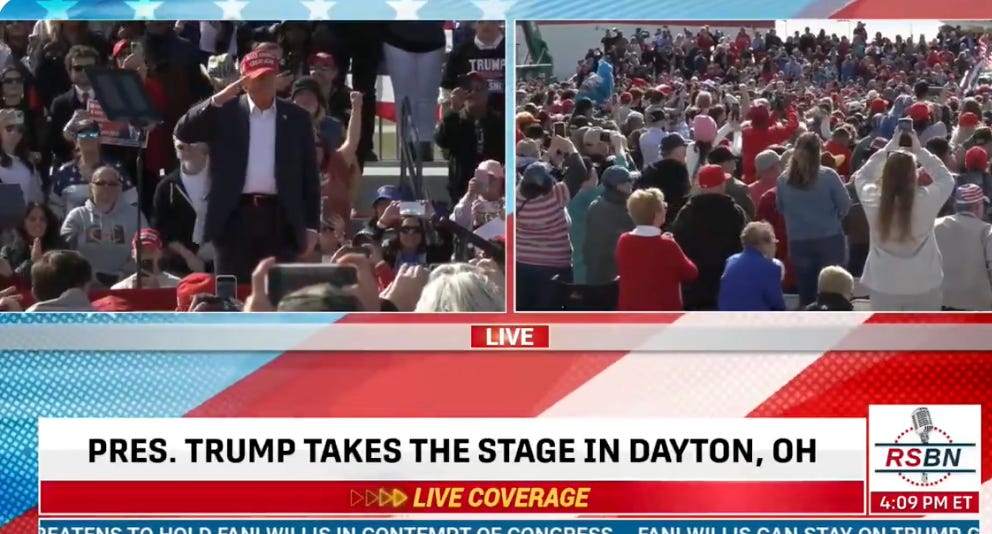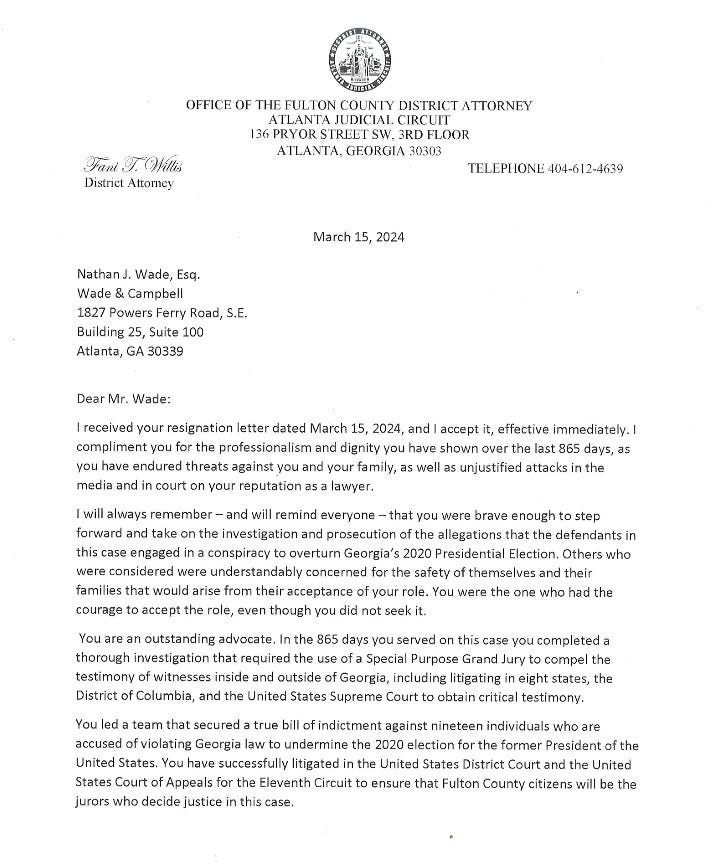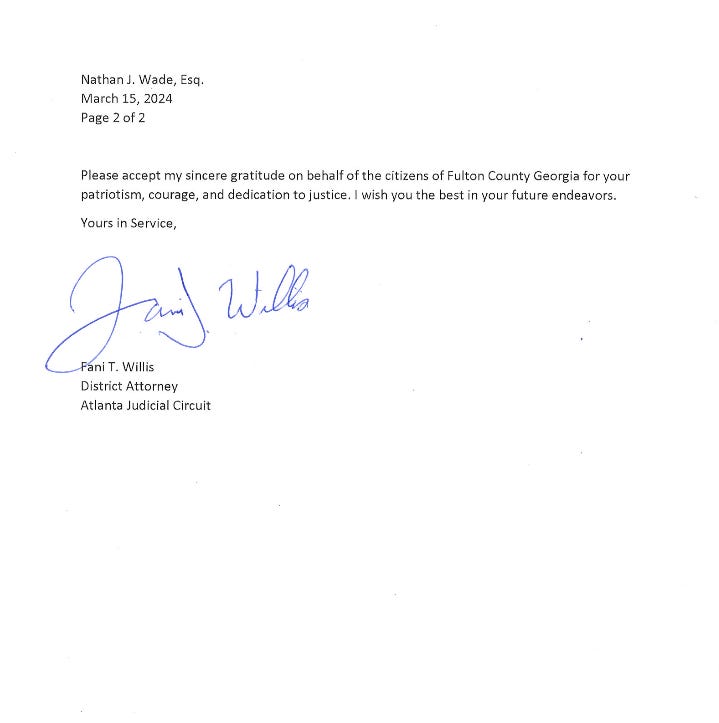This weekend, at a campaign stop in Dayton, Ohio, Trump was talking about car manufacturing factories when he suddenly took a dark turn, threatening, “now if I don’t get elected … it’s going to be a bloodbath for the country.”
At the start of the rally, there was a call for the crowd to rise for the “unfairly treated January 6 hostages.” The crowd did.
Trump apologists, including Elon Musk, claimed Trump was only talking about the car industry when he referred to a bloodbath, but we know better. Trump did one of his sudden stream-of-consciousness shifts while he was discussing some (probably made-up) friend who builds the biggest car factories in the world, to the threat of a bloodbath if he loses. The tell for me was when he said, "That'll be the least of it." He was no longer talking about car factories, and he knows what he's doing. It’s the same thing he did when he told the Proud Boys to “stand back and stand by” during the 2020 presidential debates. His people understand what he's saying, while he claims deniability.
Yes, Trump is everywhere on the airwaves, so much so that the tendency is to tune him out. But we can’t. It’s too important. He is, quite literally, telling us what he intends to do, and we need to keep sharing it with those around us.
That’s the context as we enter a week where the theme is Trump’s success at delaying the courts and preventing his criminal cases from going to trial. Trump is a master of the delay game, the recipient of numerous lucky breaks. And I’d be less than honest if I didn’t acknowledge that it’s discouraging. But read on.
Is it still possible we might see one of Trump’s criminal trials proceed before the election? Sure. We could still see the Manhattan case move forward—discussed below. The remaining three cases are tangled in procedural quagmires that make trials in them much less likely, although still not theoretically impossible. But as former Attorney General Eric Holder tweeted this past week, the cavalry isn’t coming. It’s going to be up to the voters in November if we’re going to outrun Trump.
The Mar-a-Lago case
Although Judge Cannon decided Trump’s “unconstitutionally vague” motion, as we discussed last week—at least in the sense that she kicked the can down the road to trial—there are other pending motions. None of them are meritorious, and virtually any other judge would have already knocked them down. That makes it particularly surprising that Judge Cannon still hasn’t ruled on the Presidential Records Act motion that was also argued last week. When she discussed the motion during the hearing it sounded like she was inclined to dismiss it, but not because it’s meritless. Instead, she seemed to think that this motion, like the vagueness one, was “premature” and the outcome would depend on disputed facts that would be hashed out during the trial. Because this is so facially wrong—our nation’s secrets, generated by the intelligence community, can never be Trump’s “personal records”—the fact that she’s pushing matters off to be decided during trial after a jury is empaneled and double jeopardy has attached is very concerning. We’ll watch to she if she issues a decision on this motion this week.

In the hearing last week, Judge Cannon also discussed, as though it was a serious thing, Trump’s motion to dismiss for selective or vindictive prosecution. To succeed, Trump would need proof that prosecutors singled him out for prosecution for discriminatory reasons despite not prosecuting others for the same conduct or that the prosecution was retaliation for his exercise of his rights. In other words, there’s not an iota of evidence to suggests Judge Cannon should do anything other than deny the motion promptly. But one option, if she is taking it seriously, is to find that Trump has established a prima facie case for it, or at least that he’s entitled to more discovery to try and do so, and to permit a wide-ranging inquiry into the government’s process here. In other words, more delay.
The Manhattan DA’s case
In Manhattan, both sides will be gearing up this week for their hearing a week from Monday, the once-but-no-longer date for trial to start in this case. Trump has argued that the case should be dismissed or at least delayed because the prosecution has violated its discovery obligations. The Judge has ordered both sides to provide him with a discovery timeline so he can sort out who, if anyone, is at fault, and if the prosecution sinned, what the penalty should be. He has broad discretion under New York law, up to and including dismissing the case.
But it doesn’t seem, at least based on what we know so far, as though that will be the outcome here. The issue involves evidence in the possession of the U.S. Attorney’s Office for the Southern District of New York. You’ll recall this case was brought by the Manhattan DA, a state prosecutor’s office. The DA says they requested evidence from the SDNY over a year ago and turned it over to Trump in discovery. But Trump issued a subpoena to SDNY earlier this year and after several delays (which the Trump team agreed to), SDNY began providing documents earlier this month and has no given over more than 100,000 pages. As we noted last week, not all of that will be relevant to this case, and it’s not clear that anyone, and especially not the Manhattan DA, is at fault here. But we’ll learn more once the submissions are in and the Judge conducts his hearing.
As of now, the trial is on hold until at least April 15. The Judge noted that he would set a new trial date, “if necessary,” after he ruled on Trump’s motion for discovery violations.
The Fulton County Case
After Judge McAfee’s ruling on the disqualification motion that DA Fani Willis could stay on the case if special prosecutor Nathan Wade resigned, Willis promptly accepted Wade’s resignation. The standard under Georgia law requires proof of a financial conflict of interest for disqualification, and the defendants didn’t get there. But Judge McAfee went beyond that, concerned about an appearance of impropriety and what he called an “odor of mendacity” to require Wade to step aside.
An attempt at appealing is almost certain to follow. Trump’s lawyer Steve Sadow has promised to, and it’s possible that the DA’s office might seek to as well. The question is whether the Georgia courts will permit an unusual interlocutory appeal—one that occurs before trial—or consign this issue to post-trial motions if there is a conviction.
Under Georgia law, it’s up to the trial judge to issue a certificate of appealability (“COA”) within 10 days of his ruling for either party to take it to the court of appeals. And then, the court of appeals would also have to agree to hear the case before an interlocutory appeal would take place. So we’ll watch carefully this week for the parties to request a COA and for Judge McAfee’s ruling. Although not an indication for certain, he dropped a footnote in his opinion dismissing six counts in the indictment last week saying he’d issue a COA if the DA wanted to appeal. He didn’t do so when he decided the disqualification motion, so there are at least a few tea leaves to be read here.
Willis was complimentary of Wade’s work when she accepted his resignation. Although Wade initially booked an interview on NBC’s Meet The Press show Sunday morning, apparently, some better angels whispered in his ear and he canceled the appearance. The Judge had already suggested that Willis’ discussion of the matter at an AME Church in Atlanta might merit a gag order against the DA’s office. At this point, no one associated with the prosecution, even formerly, should be stoking those flames. Without regard to whether Willis was treated fairly in all of this (the court permitted a wide-ranging inquiry that went well beyond her financial interests), the most important thing going forward is this prosecution and getting the case to trial, and it’s important to stay focused on that. Experienced prosecutors know that defendants engage in this sort of conduct and will push it as far as the judge will let them, in order to draw the prosecution off of its case. Now it’s time for the prosecutors on the case to get back to work.
If the courts do take up an appeal now, there is lots of potential for delay. I say potential because it’s not clear that further proceedings in the trial court would be stayed while the appeal moved forward and also because the court would have the option of moving quite quickly, especially since the side benefit of the extensive hearing the Judge conducted is that there is a full factual record and the issues were argued in court.
But the deadlines set for Georgia law would permit this case to slip well past the election. If Judge McAfee authorizes a COA, any party that want to appeal has ten more days to file with the court of appeals. The opposing party(ies) get ten days to respond, arguing the appeal should not proceed. Other parties are free to file amicus briefs. The rules don’t provide for reply briefs or oral argument, but they give the court an additional 45 days to issue a ruling. We’re already at the two month mark before the court determines it will hear the appeal, if everyone takes up all the time they’re authorized to use.
If the court of appeals decides to hear the case, the appealing party(ies) have ten days after that order is entered to file a notice of appeal. Then they get 20 days to file their brief after the court dockets the appeal. The other side gets 40 days from the date the appeal is docketed or 20 days after the opening brief is file, whichever is later, to respond. And then the party taking the appeal has another 20 days to reply. You see the point here. That’s about 165 days (I went to law school to avoid math, so mea culpa if I’m off by a bit here) before the case is fully briefed—not even argued or decided. And there could be a further appeal to Georgia’s supreme court.
All of that to say that we’re about to see a Pandora’s box of appellate delays get opened. We’ll watch for the courts’ decisions about whether there will be an appeal, and also, importantly, about whether Judge McAfee can continue with pre-trial proceedings or whether everything will be stayed if there is one.
What We Can Do As Voters
Here’s something that shouldn’t be news but is: Mike Pence finally found the backbone to stand up to Trump and say he won’t vote for him. This should have been an easy call for Pence, one made years ago. Trump stood by while the mob attacked, knowing there was the possibility his vice president would be injured or even killed. But former Trump supporters, even his failed primary opponents, seem to flock to Trump like fireflies to the light. So while Pence is no hero, his change of heart is something worth talking about with Trump supporters or undecided folks in your orbit.
Pence isn’t alone in rejecting Trump. Last July, NBC reached out to 44 of Trump’s former cabinet secretaries and found that only four of them (former Acting Attorney General Matthew Whitaker; final Chief of Staff Mark Meadows; former budget chief Russell Vought; and former Acting Director of National Intelligence Richard Grenell) supported Trump’s reelection bid. And Pence isn’t the only former vice president who has rejected a return to Trump.
Pence isn’t a powerful voice for people who are already committed to voting for Joe Biden. But his decision to come out in this moment and say he doesn’t support Trump because Trump doesn’t support the conservative agenda could be powerful with voters who are undecided or even those who lean for Trump. They might be persuaded if they learn that Trump’s own vice president (along with most of his cabinet secretaries) doesn’t support him.
If Pence can finally reject Trump, others in his base can too. Make this your talking point to share with those around you for the week and see where it takes you. It’s very likely that if Trump supporters don’t hear it from you, they won’t see it at all. It won’t be a focus on Fox, or OAN, or whatever news bubble they reside in. The cavalry may not be coming, but we are, voters committed to good information, and we can do this with patience and persistence.
We’re in this together,
Joyce










Trump's inflammatory choice of words is out there again doing its dirty work. He is charged with 4 felonies and out on pre-trial release. When will anyone put him where he can't whip things up? He is a danger to society and needs to be off the streets. So frustrating.
I look at the “bloodbath” comment as voter intimidation. A threat if not voted for. Why is he still running around loose. Should be in jail or a mental institution.